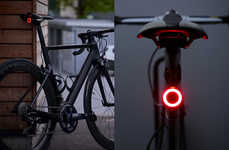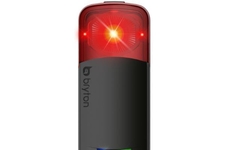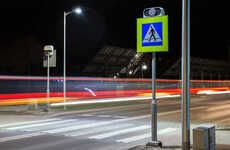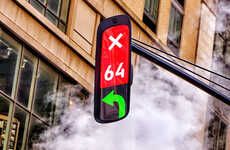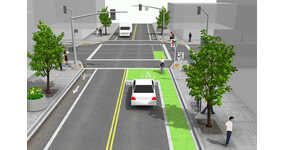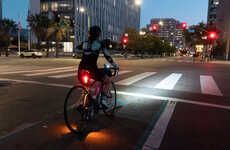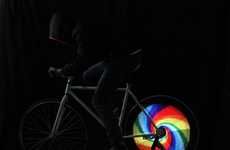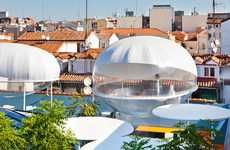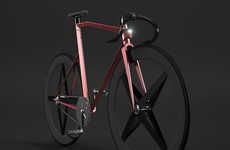
This Traffic Light Sensor Prioritizes Bike Riders in the Rain
Alyson Wyers — December 31, 2015 — Autos
References: rotterdam.nl & springwise
This traffic light sensor in the Dutch city of Rotterdam gives cyclists a green light faster in rainy weather. The sensor system is currently part of a trial that only makes bike riders wait for 40 seconds for the light to turn green when it's raining.
Other cities are also experimenting with traffic priority, but this is the only one to focus in on inclement weather conditions. This allows wet commuters to get to their destination faster while dry drivers compromise with longer sitting time at traffic lights. Currently the traffic light sensor only exists at one intersection, but there are plans to extend their reach in the future.
Rotterdam already has dedicated phasing for bicycle lanes, showing how invested the city council is to encouraging environmentally friendly (not to mention healthy) modes of transport.
Other cities are also experimenting with traffic priority, but this is the only one to focus in on inclement weather conditions. This allows wet commuters to get to their destination faster while dry drivers compromise with longer sitting time at traffic lights. Currently the traffic light sensor only exists at one intersection, but there are plans to extend their reach in the future.
Rotterdam already has dedicated phasing for bicycle lanes, showing how invested the city council is to encouraging environmentally friendly (not to mention healthy) modes of transport.
Trend Themes
1. Cyclist-prioritized Traffic Lights - Opportunity to implement traffic light sensors that prioritize cyclists, improving their commuting experience and promoting sustainable transportation.
2. Weather-responsive Technology - Disruptive innovation opportunity to develop weather sensors that can adjust traffic lights based on weather conditions, optimizing traffic flow for different modes of transportation.
3. Smart Transportation Systems - Opportunity to integrate advanced sensor technologies into transportation infrastructure to create efficient and adaptable systems that prioritize different modes of transport based on real-time conditions.
Industry Implications
1. Transportation - The transportation industry could benefit from adopting cyclist-prioritized traffic lights and weather-responsive technologies, enhancing overall efficiency and sustainability.
2. Smart City - In the realm of smart cities, integrating smart transportation systems that prioritize different modes of transport based on weather conditions can lead to sustainable and efficient urban environments.
3. Urban Planning - Urban planners could consider the implementation of cyclist-focused traffic lights and advanced sensor technologies as disruptive solutions for creating cyclist-friendly cities and improving mobility.
2.8
Score
Popularity
Activity
Freshness


